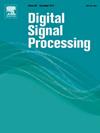Quantum-enhanced signal processing via VQE for improved biomechanical feedback control
IF 2.9
3区 工程技术
Q2 ENGINEERING, ELECTRICAL & ELECTRONIC
引用次数: 0
Abstract
The Variational Quantum Eigensolver (VQE) is a hybrid quantum-classical algorithm that has demonstrated significant potential for solving quantum chemistry problems, particularly in determining the ground state energy of small molecules like H2. In this paper, we extend the application of VQE beyond quantum chemistry by utilizing it to analyze sensor data from engineered socks equipped with an accelerometer, and gyroscope sensors. Our goal is to explore the sensitivity of accelerometer and gyroscope signals to specific motion frequencies by encoding their data into the quantum states of the H2 molecule's qubits. We introduce an automatic control mechanism based on a classical feedback loop, where the output of the VQE is compared to the desired input, and corrective actions are applied using a constant K to ensure the output follows the input closely. This feedback loop is designed to assist the algorithm in managing local minima, noise, and computational challenges. Using this feedback-controlled VQE system, we optimize sensor signal analysis and determine which sensor exhibits higher sensitivity to specific biomechanical frequencies. Our experimental results indicate the potential flexibility of VQE in analyzing specific biomechanical data, providing preliminary insights into the broader applications of quantum algorithms in wearable technology. As quantum hardware advances, VQE may offer applications in complex systems and diverse fields, including personalized healthcare and motion capture.

通过VQE改进生物力学反馈控制的量子增强信号处理
变分量子本征求解器(VQE)是一种量子-经典混合算法,在解决量子化学问题方面具有巨大的潜力,特别是在确定H2等小分子的基态能量方面。在本文中,我们将VQE的应用扩展到量子化学之外,利用它来分析配备加速度计和陀螺仪传感器的工程袜子的传感器数据。我们的目标是通过将加速度计和陀螺仪信号的数据编码到H2分子量子比特的量子态中,来探索加速度计和陀螺仪信号对特定运动频率的灵敏度。我们引入了一种基于经典反馈回路的自动控制机制,其中VQE的输出与期望的输入进行比较,并使用常数K应用纠正措施以确保输出与输入密切相关。该反馈回路旨在帮助算法管理局部最小值,噪声和计算挑战。利用这种反馈控制的VQE系统,我们优化了传感器信号分析,并确定了哪种传感器对特定的生物力学频率表现出更高的灵敏度。我们的实验结果表明,VQE在分析特定生物力学数据方面具有潜在的灵活性,为量子算法在可穿戴技术中的更广泛应用提供了初步的见解。随着量子硬件的进步,VQE可能会在复杂系统和不同领域提供应用,包括个性化医疗保健和动作捕捉。
本文章由计算机程序翻译,如有差异,请以英文原文为准。
求助全文
约1分钟内获得全文
求助全文
来源期刊

Digital Signal Processing
工程技术-工程:电子与电气
CiteScore
5.30
自引率
17.20%
发文量
435
审稿时长
66 days
期刊介绍:
Digital Signal Processing: A Review Journal is one of the oldest and most established journals in the field of signal processing yet it aims to be the most innovative. The Journal invites top quality research articles at the frontiers of research in all aspects of signal processing. Our objective is to provide a platform for the publication of ground-breaking research in signal processing with both academic and industrial appeal.
The journal has a special emphasis on statistical signal processing methodology such as Bayesian signal processing, and encourages articles on emerging applications of signal processing such as:
• big data• machine learning• internet of things• information security• systems biology and computational biology,• financial time series analysis,• autonomous vehicles,• quantum computing,• neuromorphic engineering,• human-computer interaction and intelligent user interfaces,• environmental signal processing,• geophysical signal processing including seismic signal processing,• chemioinformatics and bioinformatics,• audio, visual and performance arts,• disaster management and prevention,• renewable energy,
 求助内容:
求助内容: 应助结果提醒方式:
应助结果提醒方式:


